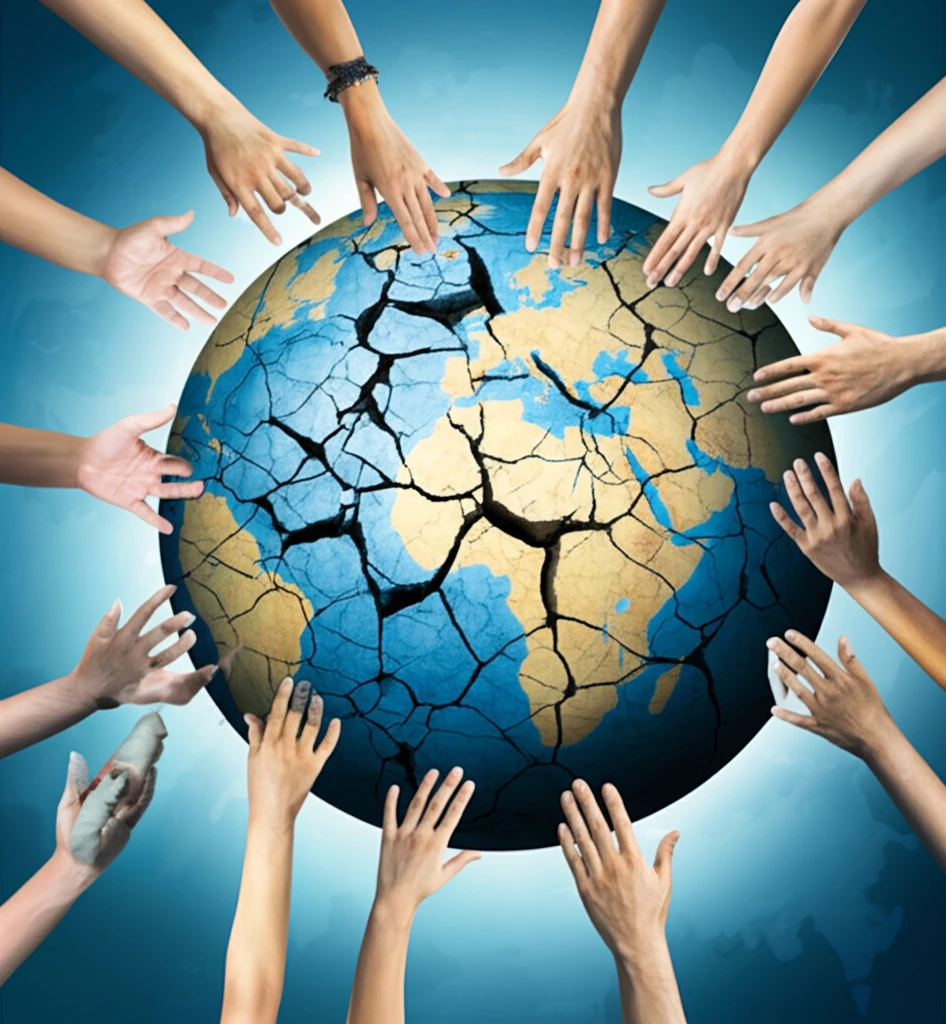
Beyond Borders: Unmasking the Hidden Power Dynamics in Humanitarian Aid
"Is humanitarian aid truly selfless, or does it perpetuate existing inequalities? A critical look at the power structures shaping disaster response."
In times of crisis, the image of aid workers rushing to alleviate suffering is a powerful one. Humanitarian aid is often presented as a purely benevolent act, a testament to our shared humanity. Yet, beneath the surface of these seemingly selfless endeavors lies a complex web of power dynamics, historical legacies, and unintended consequences. Is it possible that our efforts to help are, in some ways, perpetuating the very inequalities we seek to overcome?
This article delves into the critical questions surrounding humanitarian aid, drawing upon academic research to explore the hidden power structures at play. We'll examine how the concept of humanitarianism has evolved, its historical roots in colonialism, and the ways in which it can inadvertently marginalize local communities and reinforce existing power imbalances.
By unmasking these hidden dynamics, we aim to foster a more nuanced understanding of disaster response and promote more equitable and effective approaches to helping those in need. It's time to move beyond simplistic narratives and embrace a critical perspective that empowers local voices and prioritizes community-led solutions.
The Colonial Echo: How Humanitarianism Reinforces Historical Power Dynamics

The modern concept of humanitarianism, while rooted in noble intentions, has historical ties to colonialism. During the colonial era, European powers often framed their interventions in other countries as acts of benevolence, a "civilizing mission" aimed at improving the lives of the colonized. This paternalistic approach, while seemingly altruistic, served to legitimize colonial rule and reinforce the idea of European superiority.
- Ignoring Local Knowledge: Humanitarian efforts often overlook the expertise and resilience of local communities, undermining their ability to cope with disasters on their own terms.
- Imposing Western Values: Aid programs may inadvertently promote Western values and norms, disregarding local customs and traditions.
- Creating Dependency: A top-down approach to aid can create dependency, preventing communities from developing their own sustainable solutions.
- Lack of Accountability: Local communities often have limited say in how aid is distributed and used, leading to a lack of accountability and potential for corruption.
Toward a More Equitable Future: Reimagining Humanitarianism
Moving forward, it is crucial to reimagine humanitarianism in a way that empowers local communities, respects cultural diversity, and challenges existing power imbalances. This requires a shift from a top-down, Western-centric approach to a more collaborative and community-led model. By prioritizing local knowledge, fostering self-reliance, and promoting accountability, we can create a more equitable and effective system of disaster response that truly serves the needs of those affected.
